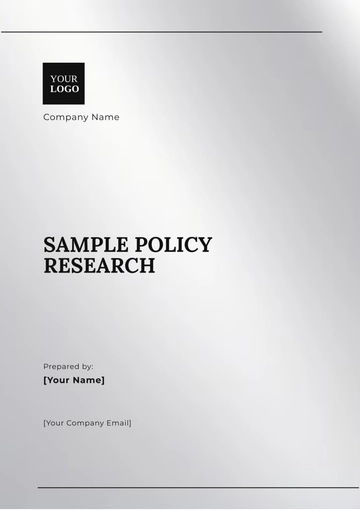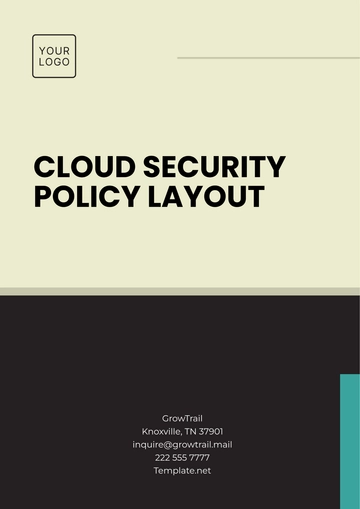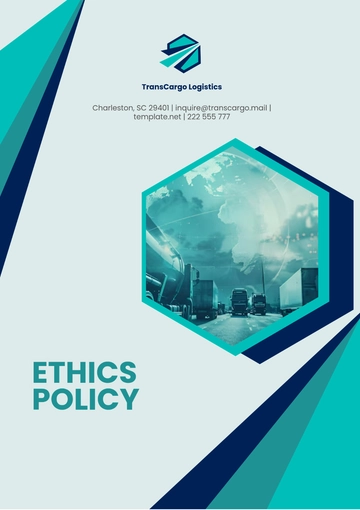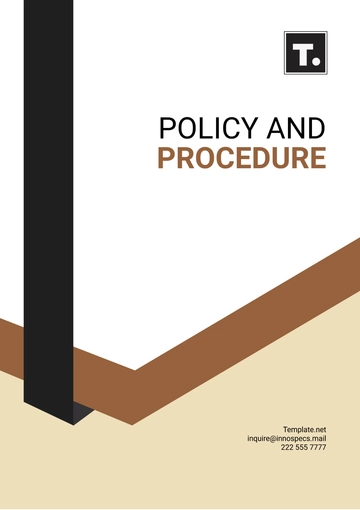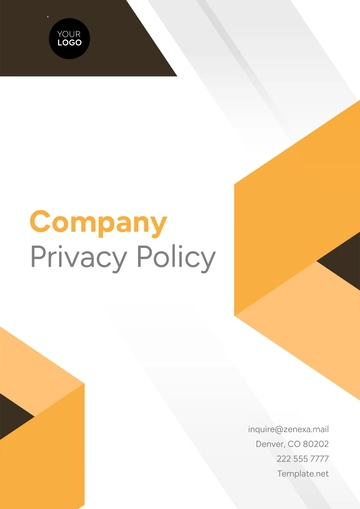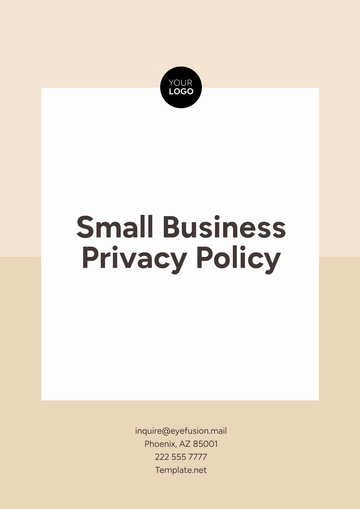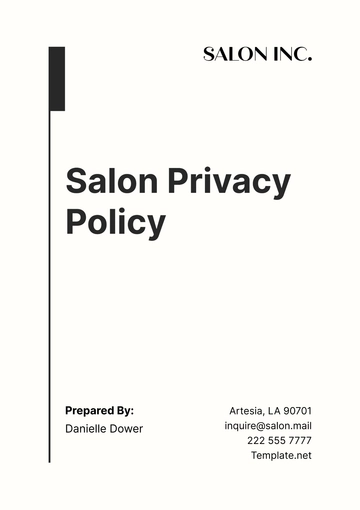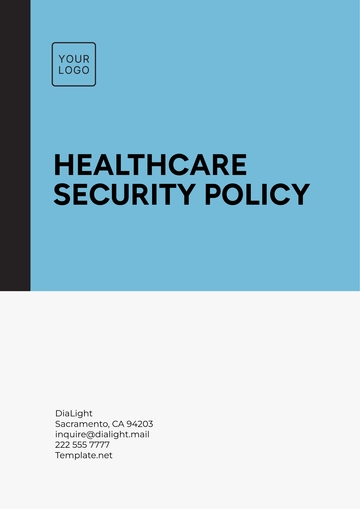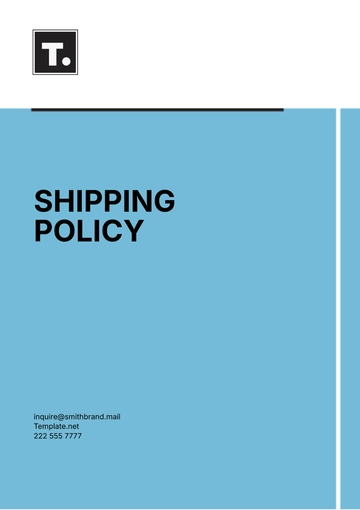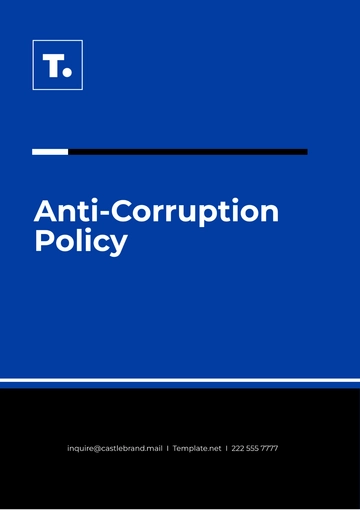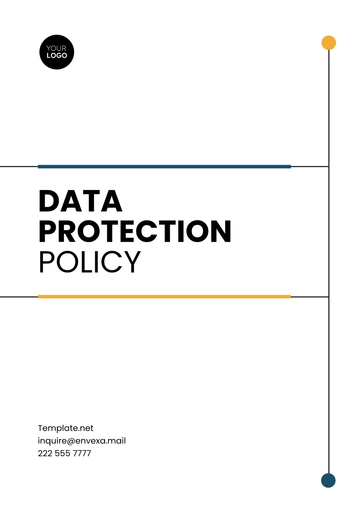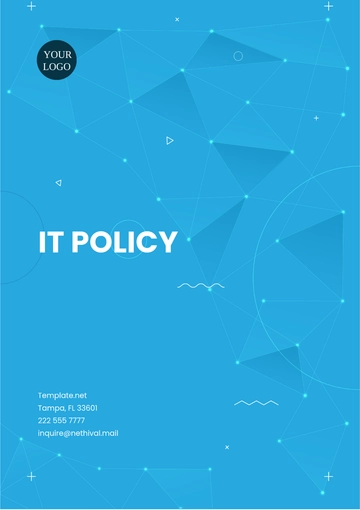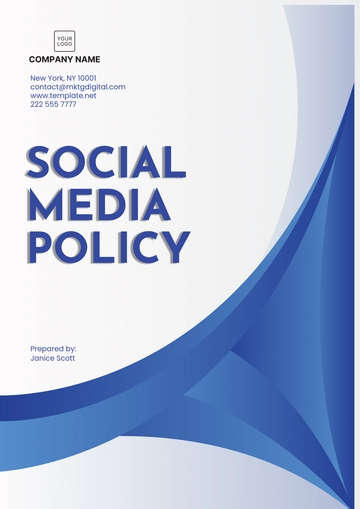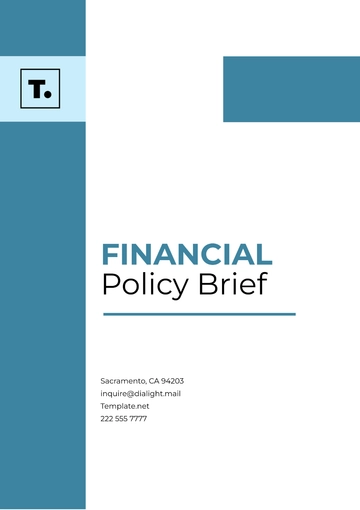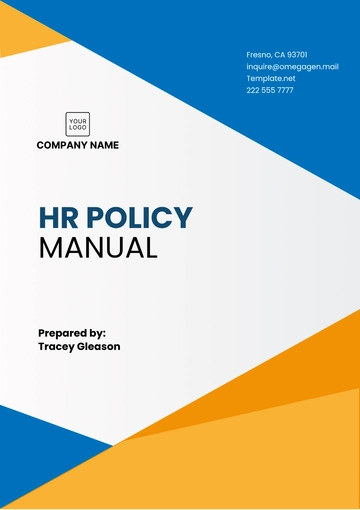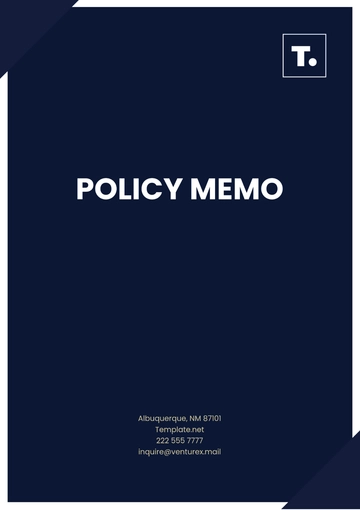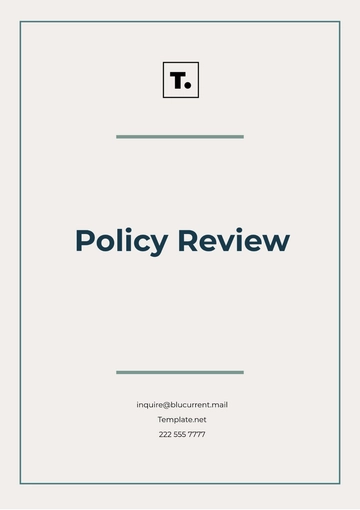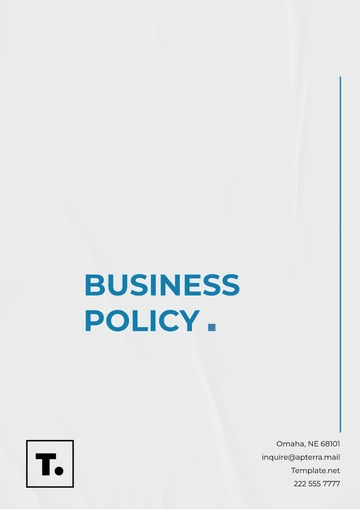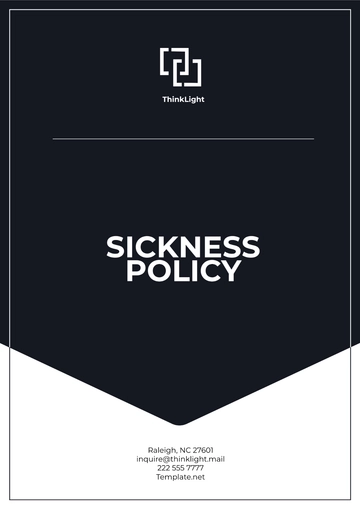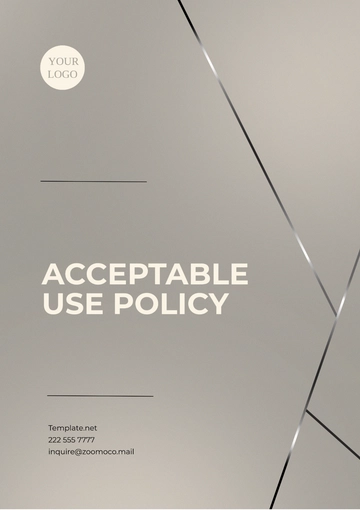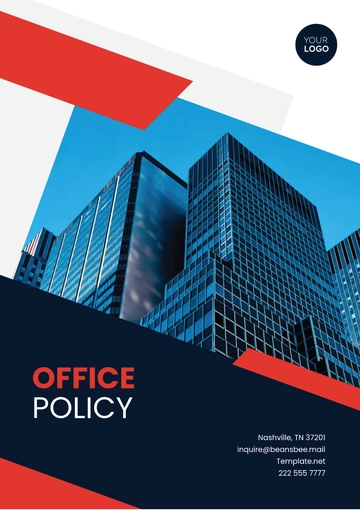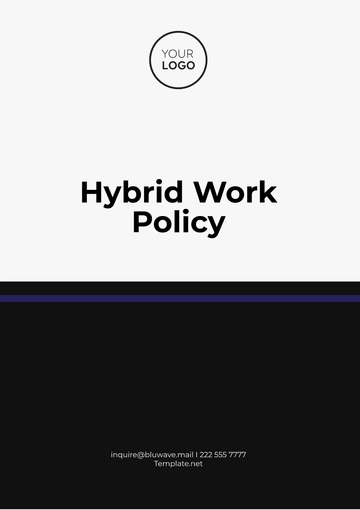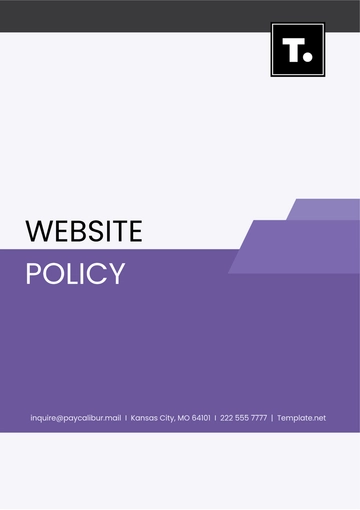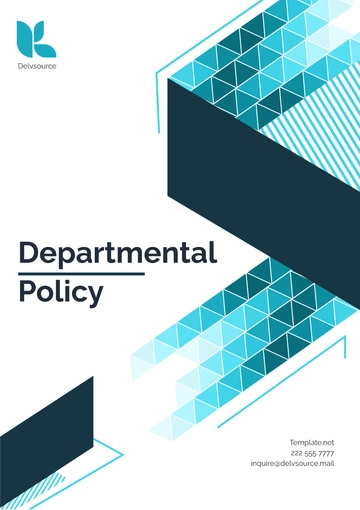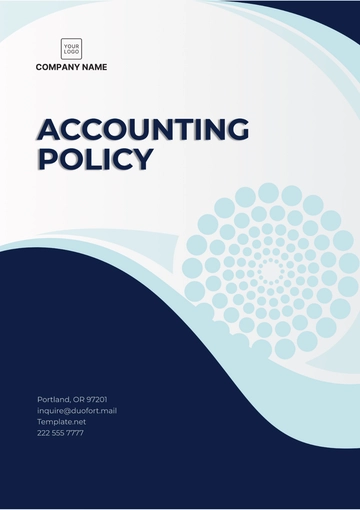Free Legal Corporate Compliance Policies & Procedures Portfolio
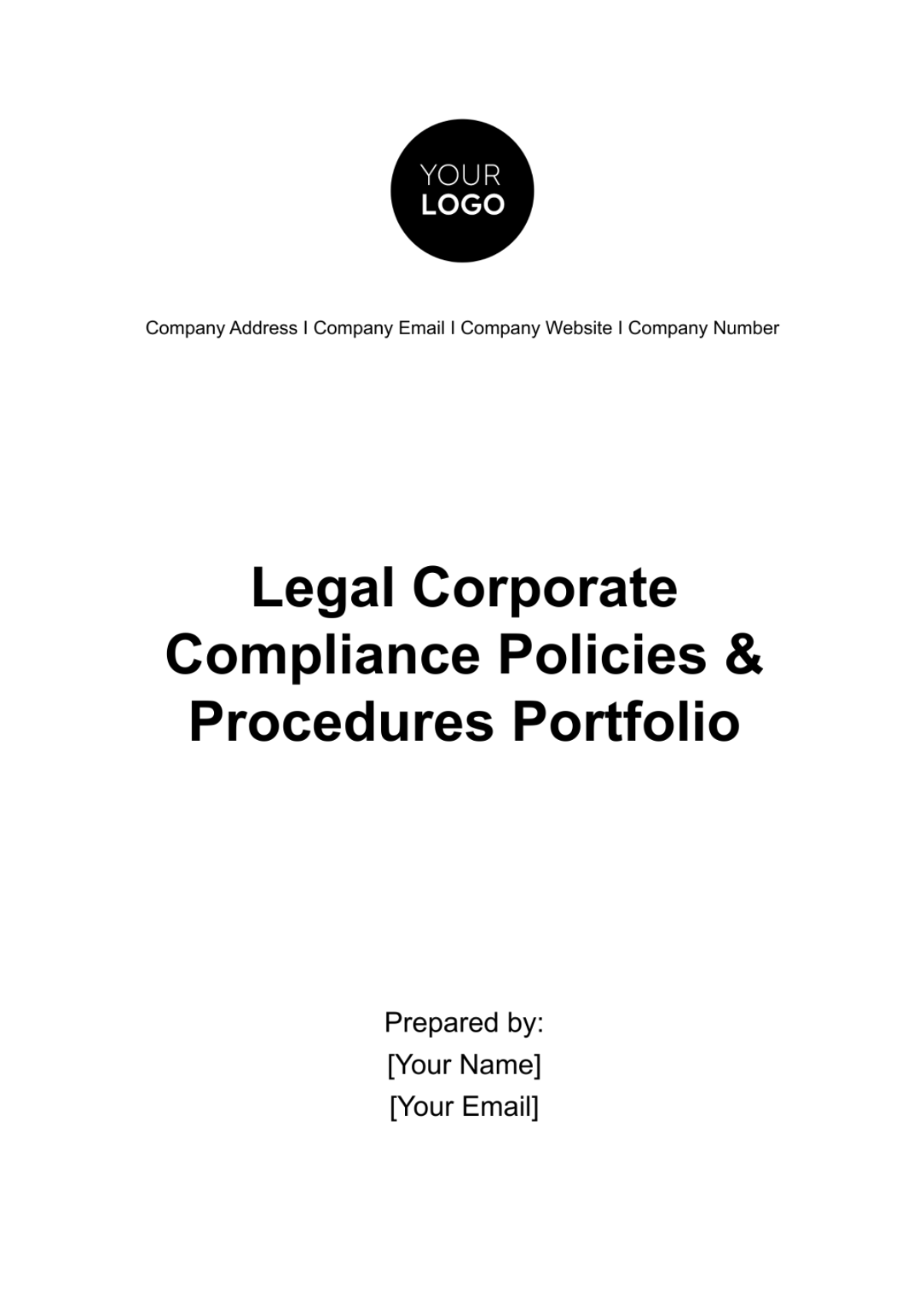
I. Introduction
A. Purpose and Scope
This document serves as the foundation of our commitment to uphold the highest standards of legal and ethical conduct. It outlines the policies and procedures designed to ensure compliance with all applicable laws, regulations, and internal guidelines. The scope of this portfolio encompasses all aspects of our operations, from corporate governance and financial practices to workplace safety and environmental responsibility. By adhering to these policies, we safeguard our integrity, maintain public trust, and protect our assets and reputation.
B. Compliance Philosophy
Our compliance philosophy is built on the principle of integrity, ensuring that all business operations are conducted legally and ethically. We believe in proactive compliance, where adherence to laws and regulations is integrated into every facet of our business processes. This commitment extends beyond mere legal compliance to embody ethical practices that reflect our corporate values. It is our belief that a strong foundation of compliance enhances our ability to serve our stakeholders and contributes to our long-term success.
C. Responsibility and Accountability
Role | Responsibility | Accountability Measures |
Board of Directors | Oversight of compliance policies and strategic direction. | Regular reviews of compliance reports and audits. |
Compliance Officer | Development, implementation, and monitoring of compliance programs. | Direct reporting to the Board and CEO on compliance issues. |
Department Managers | Ensuring compliance within their respective areas. | Periodic assessments and reports on compliance status. |
All Employees | Adhering to compliance policies and procedures. | Mandatory compliance training and adherence to policies. |
II. Legal Compliance
A. Regulatory Compliance
Our organization is committed to full compliance with all applicable regulatory requirements that govern our industry and operations. This commitment ensures that we conduct our business in a manner that meets or exceeds the legal standards set forth by regulatory bodies. To achieve this, we continually monitor and evaluate our compliance programs in response to changes in legislation and industry best practices.
Relevant U.S. laws and regulations we adhere to include, but are not limited to:
Sarbanes-Oxley Act (SOX) for financial integrity and accountability.
Dodd-Frank Wall Street Reform and Consumer Protection Act for financial regulations.
Health Insurance Portability and Accountability Act (HIPAA) for patient data protection.
Federal Information Security Management Act (FISMA) for information security.
Occupational Safety and Health Act (OSHA) for workplace safety.
Environmental Protection Agency (EPA) regulations for environmental compliance.
Equal Employment Opportunity Commission (EEOC) regulations for employment practices.
B. Licensing and Permits
Obtaining and maintaining the necessary licenses and permits is crucial for our legal operation. Our approach to licensing and permit management is systematic and thorough, ensuring that we remain compliant with all local, state, and federal requirements.
Steps for obtaining and maintaining permits include:
Identifying applicable requirements based on our operations and locations.
Submitting accurate and complete applications to the relevant authorities.
Paying any required fees and participating in inspections or assessments as required.
Keeping accurate records of all licenses and permits, including expiration dates and renewal requirements.
Monitoring changes in legislation that may affect our licensing requirements.
Renewing licenses and permits before their expiration dates to ensure continuous compliance.
III. Corporate Governance
A. Board of Directors and Management
The governance structure of our organization is designed to foster transparency, accountability, and ethical business practices. Our Board of Directors and Management team play critical roles in setting strategic directions and ensuring that our operations adhere to both legal standards and our internal values. They are responsible for overseeing the implementation of compliance policies, evaluating business risks, and ensuring that the organization's objectives are met with the highest level of integrity.
Guidelines for board member roles include:
Establishing the organization's vision, mission, and values.
Approving strategic plans and significant business initiatives.
Monitoring financial performance and reporting.
Ensuring the effectiveness of internal controls and risk management.
Overseeing compliance with legal and regulatory requirements.
Evaluating and approving significant policies and procedures.
B. Conflict of Interest Policy
Our conflict of interest policy is designed to prevent situations that could compromise the integrity of our decision-making or lead to the perception of impropriety. It requires all employees, management, and board members to act in the best interest of the organization, avoiding any personal, financial, or other interests that might interfere with their duties or the organization's interests.
Conflict of Interest Policy includes:
Disclosure of any potential or actual conflicts of interest to a designated compliance officer.
Abstaining from decision-making processes where a conflict of interest exists.
Prohibiting the use of company property, information, or position for personal gain.
Avoiding any business or professional activity that might be in conflict with the interests of the organization.
C. Insider Trading Policy
Our insider trading policy prohibits trading in the securities of our organization on the basis of material, non-public information. This policy is in place to ensure compliance with securities laws and to maintain the trust and confidence of our shareholders and the public.
Insider Trading Policy includes:
Prohibition of buying or selling our securities when in possession of material non-public information.
Restrictions on tipping others about material non-public information.
Mandatory compliance with "blackout periods" during which trading is restricted.
Requirement for pre-clearance of trades by designated officers for directors, officers, and designated employees.
Immediate disclosure of trades made by insiders in accordance with SEC regulations.
IV. Financial Compliance
A. Accounting Policies and Procedures
Our organization is committed to maintaining the highest standards of accuracy and transparency in our financial reporting. Our accounting policies and procedures are designed to comply with all applicable financial reporting standards and regulations, ensuring that all financial transactions are recorded accurately and in a timely manner. These policies support our goal of providing clear and accurate financial information to our stakeholders, including shareholders, regulators, and the public.
Accounting Policies and Procedures include:
Adherence to Generally Accepted Accounting Principles (GAAP) for financial reporting.
Regular updates to accounting practices in line with changes in accounting standards and regulations.
Accurate and timely recording of all financial transactions.
Implementation of checks and balances to prevent errors and fraud.
Comprehensive documentation of financial transactions to support audits and reviews.
B. Internal Controls and Audit
Our internal controls and auditing procedures are central to our financial integrity and compliance. These controls are designed to detect and prevent errors, fraud, and mismanagement of financial resources. Our internal audit function plays a critical role in evaluating the effectiveness of these controls and ensuring that our financial processes meet our high standards of integrity and accountability.
Internal Controls and Audit Policy includes:
Regular assessment and improvement of internal control systems.
Internal audits conducted by an independent internal audit function.
Management's regular review of internal control effectiveness.
Reporting and resolution of internal control deficiencies.
Training for employees on the importance of internal controls and their roles in the process.
C. Anti-Money Laundering (AML)
Our Anti-Money Laundering (AML) policy reflects our commitment to preventing, detecting, and reporting activities that may involve money laundering or the financing of terrorism. We adhere to all applicable AML laws and regulations to safeguard our financial systems from being exploited for illegal activities.
Anti-Money Laundering (AML) Policy includes:
Identification and verification of customer identities to prevent anonymity in financial transactions.
Monitoring of transactions for suspicious activities and reporting to relevant authorities as required.
Compliance with all record-keeping and reporting requirements under AML regulations.
Regular AML training for employees, particularly those in customer-facing and transactional roles.
Conducting due diligence on customers and maintaining an AML compliance program that includes risk assessment and management.
V. Data Protection and Privacy
A. Data Privacy Policies
We recognize the importance of protecting the personal and sensitive information of our customers, employees, and partners. Our data privacy policies are designed to comply with all relevant data protection laws and regulations, ensuring that data is collected, stored, processed, and shared responsibly and securely. These policies reflect our commitment to privacy and data protection as fundamental aspects of our business ethics and practices.
Data Privacy Policies include:
Compliance with General Data Protection Regulation (GDPR), California Consumer Privacy Act (CCPA), and other applicable data protection laws.
Clear and transparent data collection practices, including obtaining consent where required.
Secure storage and processing of personal data to prevent unauthorized access or data breaches.
Rights of individuals to access, correct, and delete their personal data upon request.
Regular data protection impact assessments to evaluate and mitigate risks to personal data.
B. Cybersecurity Policies
Our cybersecurity policies are critical to protecting our information technology systems and data from cyber threats and incidents. These policies encompass a range of strategies and technologies designed to secure our networks, systems, and data against unauthorized access, disclosure, alteration, or destruction.
Cybersecurity Policies include:
Implementation of firewalls, encryption, and intrusion detection systems to protect sensitive information.
Regular cybersecurity training for all employees to recognize and prevent phishing attacks and other cyber threats.
Incident response plans to quickly address and mitigate the impact of any cybersecurity breaches.
Regular updates and patches to software and systems to protect against vulnerabilities.
Risk assessments and penetration testing to identify and address potential security weaknesses.
VI. Workplace Compliance
A. Equal Employment Opportunity (EEO)
We are committed to creating and maintaining a workplace where all employees are treated fairly and with respect, without regard to race, color, religion, sex, national origin, age, disability, or genetic information. Our EEO policies ensure compliance with federal, state, and local laws governing nondiscrimination in employment.
Equal Employment Opportunity Policies include:
Fair and unbiased hiring practices that promote diversity and inclusion.
Training for managers and employees on EEO laws and the importance of a discrimination-free workplace.
Processes for addressing and resolving complaints of discrimination.
Regular monitoring and evaluation of employment practices to ensure EEO compliance.
Promotion of a culture that values diversity and inclusivity.
B. Health and Safety
The health and safety of our employees are paramount. Our health and safety policies comply with the Occupational Safety and Health Administration (OSHA) standards and other applicable regulations to provide a safe working environment for all employees.
Health and Safety Policies include:
Compliance with all applicable health and safety regulations and standards.
Regular workplace safety training for employees.
Maintenance of a clean, safe, and healthful workplace.
Procedures for reporting and responding to workplace injuries or illnesses.
Implementation of emergency and evacuation procedures.
C. Harassment and Discrimination
We are dedicated to providing a workplace free from harassment and discrimination. Our policies reinforce our commitment to an environment where everyone is respected and valued, ensuring that all employees have the opportunity to work in a professional and supportive setting.
Harassment and Discrimination Policies include:
Zero tolerance for any form of harassment or discrimination.
Training programs to educate employees on recognizing, preventing, and responding to harassment and discrimination.
Confidential processes for reporting incidents of harassment or discrimination.
Prompt and thorough investigation of complaints with appropriate corrective actions.
Measures to protect complainants and witnesses from retaliation.
VII. Environmental Compliance
Our commitment to environmental stewardship is integral to our operations. We adhere to all environmental laws and regulations to minimize our impact on the environment. Our environmental compliance policies ensure responsible management of waste, emissions, and resource use, aiming to not only comply with legal requirements but also to exceed them where possible, reflecting our dedication to environmental sustainability.
Environmental Compliance Policies include:
Adherence to the Environmental Protection Agency (EPA) regulations and other relevant environmental laws.
Implementation of waste reduction and recycling programs.
Regular environmental impact assessments to minimize negative impacts on the environment.
Conservation of energy and water in our operations.
Engagement in continuous improvement practices to enhance environmental performance.
VIII. Ethics and Conduct
A. Code of Ethics
Our Code of Ethics is the foundation of our corporate culture, guiding the behavior of our employees and management. It outlines the principles of integrity, honesty, and respect that govern our business dealings and interactions. The Code serves as a guide for making ethical decisions and sets the standard for professional conduct within our organization.
Code of Ethics Policies include:
Honesty and fairness in all business activities.
Respect for the rights and dignity of all individuals.
Integrity in financial reporting and business transactions.
Compliance with all laws, regulations, and policies.
Confidentiality of proprietary and sensitive information.
B. Whistleblower Policy
Our Whistleblower Policy encourages employees to report any illegal activities, unethical conduct, or violations of company policies without fear of retaliation. It is a critical component of our commitment to transparency and accountability.
Whistleblower Policy includes:
Confidential channels for reporting violations or concerns.
Protection against retaliation for employees who report misconduct.
Prompt and thorough investigation of reported concerns.
Appropriate corrective action in response to verified violations.
IX. Training and Enforcement
A. Compliance Training Programs
To ensure our employees understand and can effectively apply our compliance policies, we have established comprehensive training programs. These programs are designed to educate employees on their legal and ethical responsibilities and to foster a culture of compliance.
Program | Frequency | Duration |
Code of Ethics | Annually | 2 hours |
Data Protection and Privacy | Bi-annually | 1 hour |
Health and Safety | Annually | 2 hours |
Anti-Money Laundering (AML) | Annually | 1.5 hours |
Harassment and Discrimination | Annually | 2 hours |
B. Monitoring and Reporting
Continuous monitoring and reporting mechanisms are in place to ensure compliance with our policies and procedures. This includes regular audits, compliance reviews, and the encouragement of reporting violations or concerns through our whistleblower program. These practices help us identify and address compliance issues proactively.
C. Disciplinary Action
Disciplinary actions are taken in response to violations of our policies and procedures to uphold the integrity of our compliance program. These actions are fair, consistent, and proportional to the nature of the violation.
Violation | Action | Severity/Conditions |
Minor policy breach | Written warning | First offense |
Repeated policy breach | Suspension | Repeated offenses |
Major legal or ethical violation | Termination | Severe or criminal offense |
Failure to report misconduct | Disciplinary action | Depending on the nature of unreported misconduct |
These measures reinforce the importance of compliance and the consequences of non-compliance, ensuring that our policies are taken seriously and adhered to by all employees.
- 100% Customizable, free editor
- Access 1 Million+ Templates, photo’s & graphics
- Download or share as a template
- Click and replace photos, graphics, text, backgrounds
- Resize, crop, AI write & more
- Access advanced editor
Presenting the Legal Corporate Compliance Policies & Procedures Portfolio Template from Template.net, the ultimate resource for consolidating your compliance framework. This editable and customizable template provides a structured approach to documenting your corporate compliance policies and procedures. Editable in our AI Editor tool, it offers an efficient way to assemble a comprehensive portfolio that clearly outlines your compliance directives.
You may also like
- HR Policy
- Restaurant Policy
- Company Policy
- Accounting Policies and Procedures
- Website Policy
- Privacy Policy
- Safety Policy
- School Policy
- IT and Software Policy
- Law Firm Policy
- Construction Policy
- Interior Design Policy
- Travel Agency Policy
- Education Academic Policy
- Security Policy
- Real Estate Policy
- Expense Policy
- Software Policy
